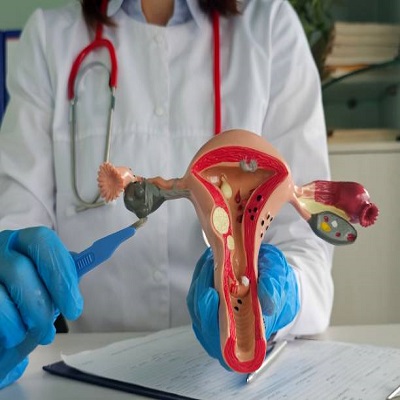Can Ivermectin Be Taken on an Empty Stomach?

Ivermectin 6 mg tablet dose is a well-known antiparasitic medication that has been used for decades to treat a wide range of parasitic infections, including intestinal worms, scabies, lice, and strongyloidiasis. It works by paralyzing and killing parasites, preventing them from reproducing and spreading within the host’s body.
One of the most common questions about this medication is:
“Can Ivermectin be taken on an empty stomach?”
This is a crucial question because the absorption of Ivermectin into the body is significantly influenced by food intake. Whether or not you eat before taking it can impact both its effectiveness and your risk of side effects.
This article dives into the best practices for taking Ivermectin, including food interactions, how it is absorbed, why timing matters, and who should be cautious.
🔹 What Is Ivermectin?
Ivermectin is a broad-spectrum antiparasitic drug, originally developed for veterinary use but now widely prescribed for humans. It is approved to treat several conditions such as:
-
Intestinal strongyloidiasis
-
Onchocerciasis (river blindness)
-
Scabies
-
Head lice
-
Filariasis
-
Ascariasis (roundworms)
It is available in oral tablets, topical creams, and injectable forms (mainly for veterinary use). The oral tablet is the most common form used in humans for systemic infections.
🔹 Should Ivermectin Be Taken on an Empty Stomach?
📌 Answer: Ideally, NO. Ivermectin should be taken on an EMPTY stomach with water—unless your doctor advises otherwise.
Here’s what the science says:
✅ 1. Increased Absorption with Food—But Riskier
Studies have shown that taking Ivermectin with a high-fat meal can increase its absorption by up to 2.5 times. This means more of the drug enters the bloodstream when you eat before taking it.
However, while this may seem beneficial at first, higher absorption also increases the risk of side effects, especially in sensitive individuals or those on higher doses.
That’s why the FDA recommends taking Ivermectin on an empty stomach with a full glass of water, about 1 hour before a meal or 2 hours after eating.
🔹 Why Is Timing Important?
The bioavailability (how much of the drug gets into your bloodstream) of Ivermectin is influenced by the presence of fat in the stomach. Although food—especially fatty meals—can increase absorption, it also raises the risk of adverse reactions, including:
-
Headache
-
Dizziness
-
Skin rash
-
Nausea
-
Abdominal pain
-
Visual disturbances
Therefore, the goal is to balance effectiveness with safety, and the standard recommendation is to take it without food to reduce side effect risk while still ensuring therapeutic results.
🔹 When Might a Doctor Recommend Taking It with Food?
In some cases, such as severe parasitic infections or patients with poor absorption issues, a doctor may intentionally recommend taking Ivermectin with food to enhance absorption.
These situations require close medical supervision, and the benefits must outweigh the potential for increased side effects. Never change how you take Ivermectin unless directed by your healthcare provider.
🔹 Best Practices for Taking Ivermectin
To ensure safety and maximum effectiveness, follow these guidelines:
✅ 1. Take on an Empty Stomach
-
1 hour before meals
-
Or 2 hours after eating
✅ 2. Drink with a Full Glass of Water
-
This aids in swallowing and absorption
✅ 3. Do Not Crush or Break the Tablet
-
Take the tablet whole unless instructed otherwise
✅ 4. Follow Your Prescribed Dose Exactly
-
Dosage is usually based on body weight (e.g., 150–200 mcg/kg)
🔹 What Happens If You Accidentally Take Ivermectin With Food?
If you mistakenly take Ivermectin with a meal—especially a high-fat meal—you may experience:
-
Faster or stronger effects
-
Increased risk of side effects
-
Dizziness or lightheadedness
In most cases, a single accidental dose with food isn’t dangerous, but if you feel unwell or experience unusual symptoms, it’s best to contact your doctor.
🔹 Special Considerations
👶 Children
Ivermectin is used in children over 15 kg (about 33 lbs). The empty stomach guideline still applies, but administration may need help from caregivers.
👵 Older Adults
Elderly patients should be cautious, as they may be more prone to side effects such as low blood pressure or dizziness, especially if they take it with food.
🤰 Pregnancy and Breastfeeding
Ivermectin should generally not be used during pregnancy unless absolutely necessary. During breastfeeding, the medication can pass into breast milk in small amounts. Always consult a doctor before use.
🔹 Can You Take Ivermectin at Night?
Yes, Ivermectin can be taken at night, as long as your stomach is empty. Some people prefer to take it before bedtime, 1–2 hours after their last meal. This may help with compliance and minimize nausea in sensitive individuals.
🔹 Common Side Effects of Ivermectin
Even when taken correctly, some people may experience side effects such as:
-
Headache
-
Dizziness
-
Muscle pain
-
Nausea
-
Fatigue
These are usually mild and go away on their own. Severe side effects are rare but include allergic reactions, vision changes, or neurological symptoms. If these occur, seek medical help immediately.
🔚 Final Thoughts
So, can Ivermectin be taken on an empty stomach?
Yes—and it’s the recommended way to take it. Taking Ivermectin on an empty stomach reduces the risk of unwanted side effects and still allows the medication to work effectively. While food—especially high-fat meals—can increase absorption, it also increases your risk of discomfort or adverse effects.
Key Takeaways:
-
Take Ivermectin 1 hour before or 2 hours after food
-
Use a full glass of water to aid absorption
-
Stick to the prescribed dose and schedule
-
Contact your doctor if you feel unwell or unsure
Proper timing and adherence make all the difference in how well Ivermectin works and how safely it performs. Always follow your doctor’s advice for the best outcome.








